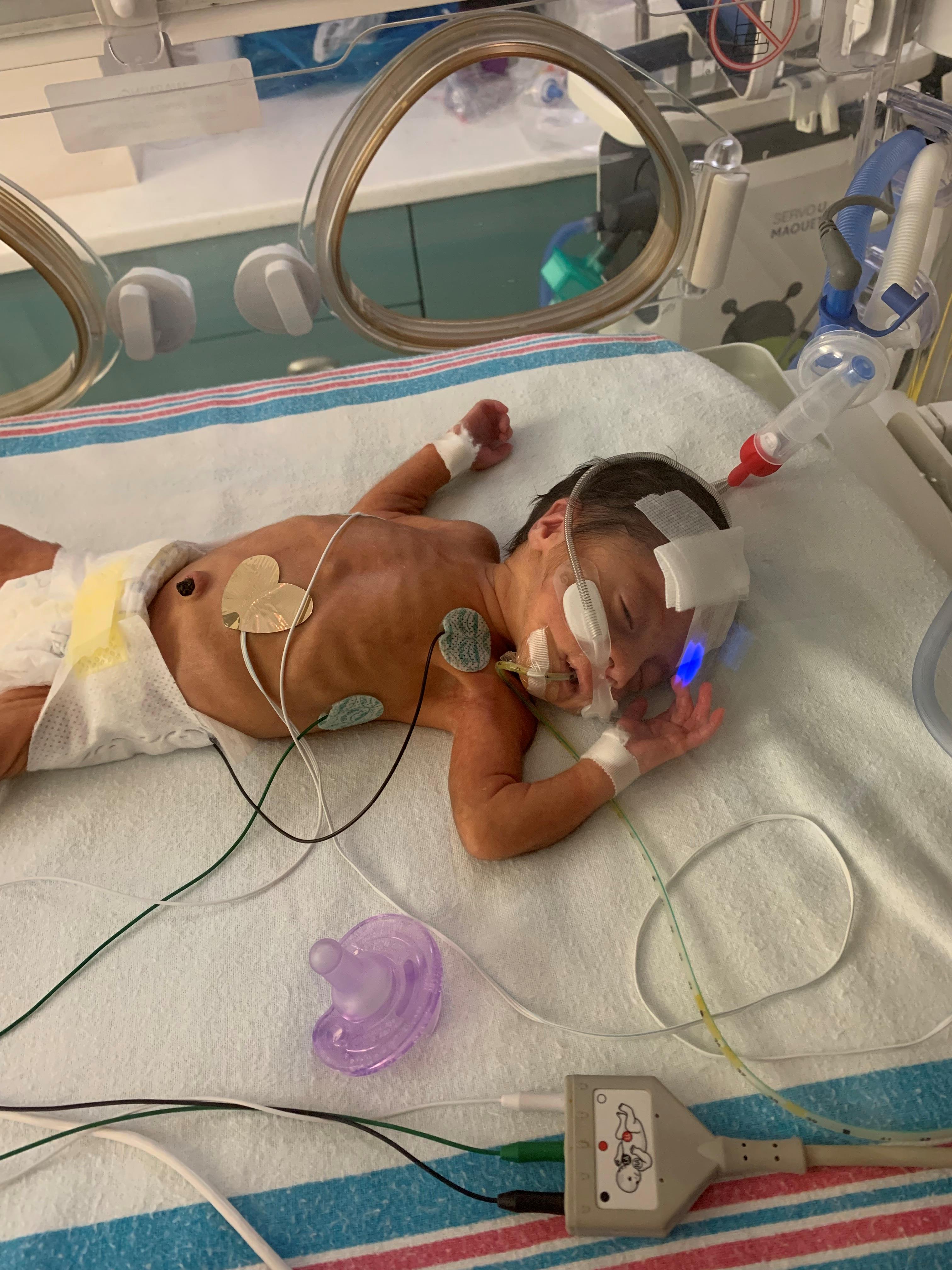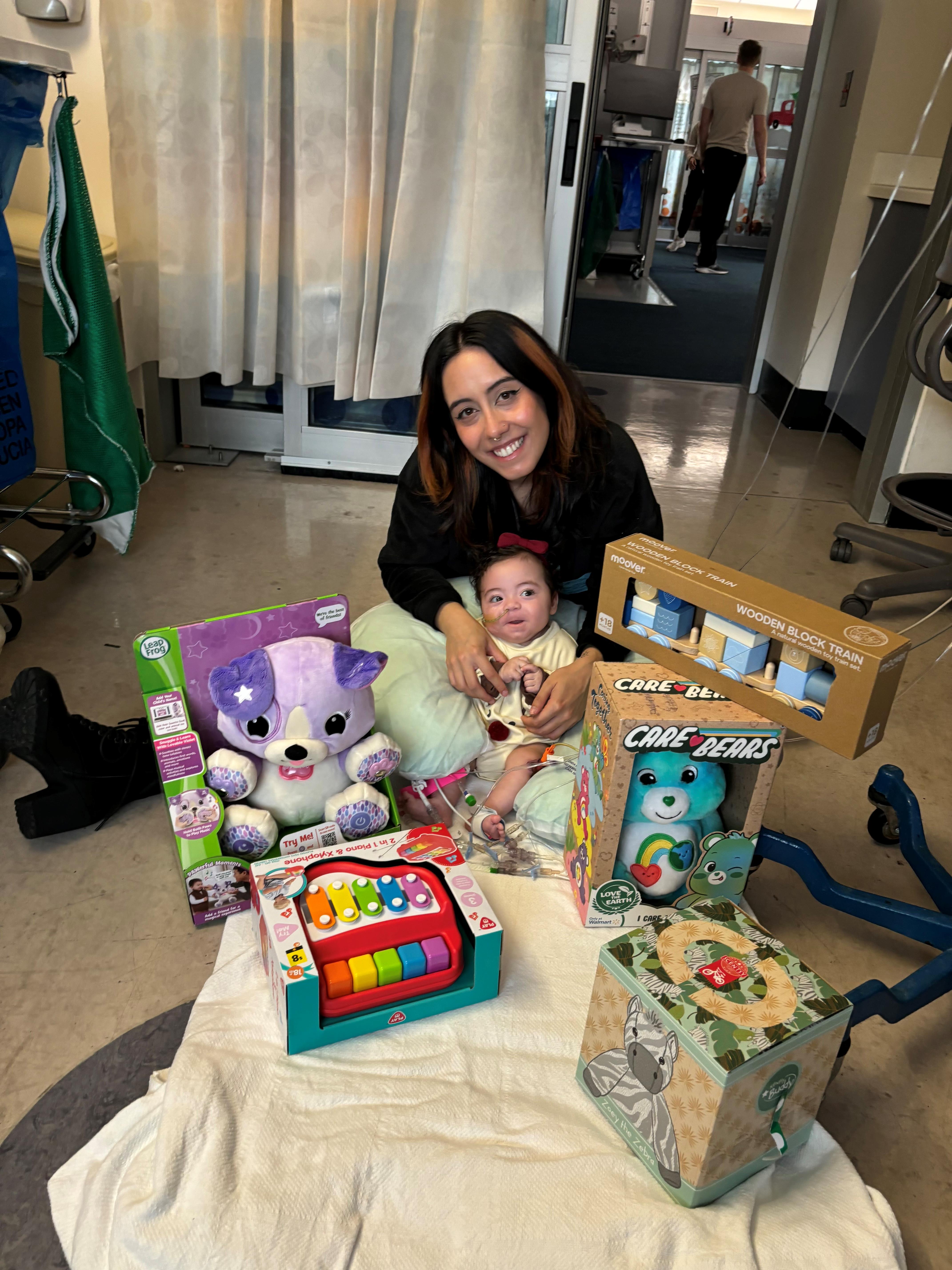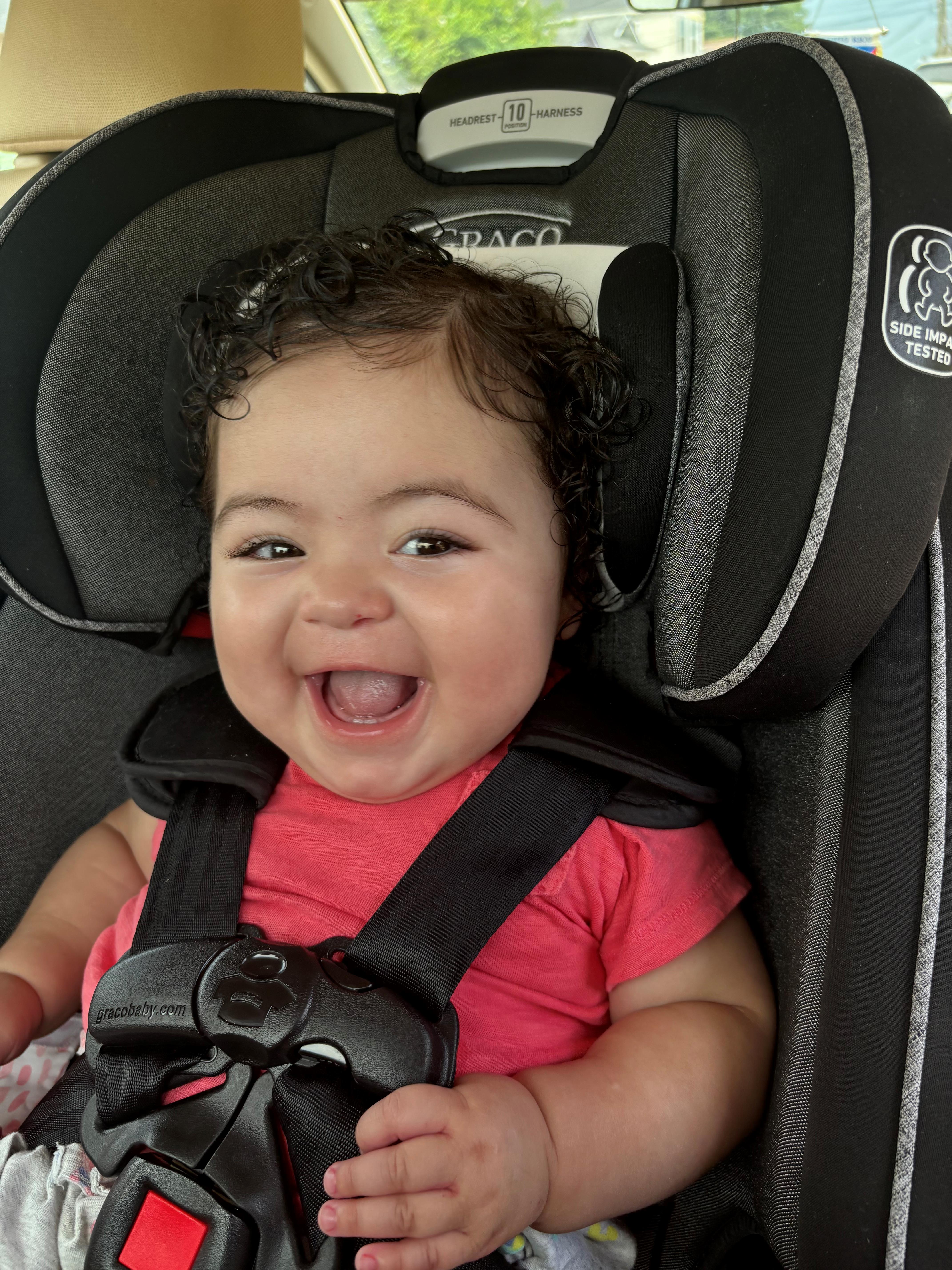Triumph over Necrotizing Enterocolitis (NEC): Liani's journey of survival
- Category: Patient Stories
- Posted on:

Fabiola Marrero’s pregnancy came as an exciting surprise to she and her boyfriend, Adam.
"The first hint that I might be pregnant was that I wasn’t losing weight as expected, despite eating healthy," Fabiola recalled. "I teased my boyfriend, Adam, 'Should I take a pregnancy test?' I did, and moments later, we were stunned. Once the initial shock wore off, we couldn’t contain our excitement."
Fabiola had no idea that her daughter's birth would be the beginning of a challenging journey ahead.
At around 28-weeks, Fabiola began experiencing Braxton Hicks contractions, sporadic uterine contractions that often start in the middle of pregnancy. Her OBGYN confirmed that everything looked fine, however two days later, her contractions intensified and were accompanied by a tinge of blood.
"I drove to Touro Hospital not knowing what to expect," said Fabiola. “When I got there, they examined me, and that’s when I learned that I was already eight centimeters dilated. I was just 30-weeks pregnant.”
Fabiola was transferred immediately to the labor and delivery room, where the medical team sprang into action to support her through the rapid progression of labor.
“Within minutes, she was already out of me,” said Fabiola. “Everything happened super-fast!”
On July 28, 2023, Fabiola and Adam welcomed their daughter, Liani, who was born prematurely at 30- weeks and 4 days. She weighed a delicate 3 pounds and 2.9 ounces. Due to her early arrival, Liani was transferred to the neonatal intensive care unit (NICU) at Touro for close monitoring and specialized care. Fabiola made regular visits to Touro Hospital to be with Liani. Then, one evening, she received unexpected news. 
“Liani was very sick,” said Fabiola. “Her belly was distended, and they found blood in her stool. My baby was doing fine all day, but by afternoon, she looked like a completely different child. That scared me.”
Liani was diagnosed with necrotizing enterocolitis (NEC) at just four days old. NEC is a serious intestinal condition often seen in premature babies causing inflammation and harm to the intestines, especially the lining. In severe instances, it can lead to the death of intestinal tissue, and holes in the intestinal wall.
“When the doctors were trying to explain this to me, the only words I literally heard while processing everything were ‘surgery’, ‘transport team’, and ‘potentially death if not treated urgently’. I lost my mind,” Fabiola said. “Once I calmed down to make sense of everything, the doctors explained to me my baby would need to be flown to Children’s Hospital New Orleans where she would possibly need surgery.”
When Liani arrived at Children’s Hospital, the nurses immediately started her on antibiotics. Dr. Evans Valerie, their pediatric surgeon, explained to Fabiola how they typically treat NEC starting with antibiotics to see if the inflammation clears up. If it doesn’t, surgery would be the next resort. Assessing Liani’s labs, Dr. Valerie expressed confidence that Liani’s condition appeared relatively treatable.
However, Liani’s condition took a critical turn when Dr. Valerie discovered Liani’s bowels had perforated, causing the infection to leak out into her body. Due to the urgency of the situation, emergency surgery was necessary.
On August 5, 2023, Liani, who was just over a week old, underwent her first surgery. 
"Our initial plan was to repair the perforated holes in Liani’s intestines," Dr. Valerie explained, "but the situation turned out to be more severe than we anticipated. When we began the surgery, we found that a large portion of Liani’s intestines had become necrotic, or had died, due to the infection. To improve her outcomes, we had to remove 70 percent of the affected intestine, leaving only 30 percent viable."
Two days later, another surgery was performed to evaluate the remaining 30 percent of Liani's intestines, which thankfully appeared healthy. During this procedure, an ostomy was established to divert waste from the intestines, and a mucus fistula was constructed to facilitate mucus passage, aiding in healing and reducing the risk of blockages. Subsequently, Liani underwent another intervention in which Dr. Valerie inserted a G-tube to help with Liani’s feedings.
“It was hard to see my daughter go through this – she was fragile and just a few days old,” recounted Fabiola. “After those two surgeries, she was doing a lot better as far as her appearance. I was still worried about what was going to happen next. But then it was kind of smooth sailing from then on.”
Having been intubated since the surgeries, Liani relied on oxygen support and received nutrition through the G-tube. Fabiola continued to pump breast milk, which was administered through the G-tube, while the NICU nurses monitored Liani's condition. It was a long period of letting Liani rest and recover.
By the end of August, Liani was extubated and transitioned to a nasal cannula. Soon after, the oxygen support was completely removed, giving Liani’s parents the opportunity to see her “beautiful little face.”
From that moment on, the primary focus shifted to ostomy care until Dr. Valerie determined it was the appropriate time to reconnect Liani's intestines. In the following months, the main emphasis was on Liani's healing and recovery, closing with her next surgery on October 31.
“Liani did well after her reconnection surgery,” said Fabiola. “Once her intestines were reconnected, the next step was to wait for her to have a bowel movement on her own for her intestines to fully awaken and function. As you can imagine, her medical team and I were all eagerly anticipating that moment.”
However, Liani began facing challenges with bowel movements, caused by a stricture found at the site where her intestines were reconnected. Despite her strength and resilience, another surgery became necessary. Her final procedure took place on December 27, 2023, marking a pivotal moment in her journey.
Two days later, Liani passed stool without assistance. From then on, things started looking up. Liani made significant strides in her feeding and bowel movements, indicating significant progress in her recovery.
After spending eight months in the NICU, Liani was ready to be discharged home. March 12, 2024, became a day of celebration as Fabiola embraced her miracle baby and walked out of the NICU, ready to face the future together.
Fabiola says she is thankful for the support of the doctors and nurses in the NICU at Children’s Hospital who cared for Liani when she couldn’t always be present. Uncertain of how long Liani would stay, Fabiola returned to work as an elementary teacher, balancing her job with visits to the hospital for many months.
“The nurses in the NICU were amazing,” said Fabiola. “They became my best friends. They loved my daughter as much as I did. Their dedication, along with her doctors, gave me peace, knowing she was in good hands even when I couldn’t be there. Thanks to their care, Liana has thrived. She’s truly a miracle baby. She is a happy baby, always smiling and laughing, and she is learning how to scream to get your attention. She weighs 20 pounds and eats like a champ.” 
Liani is slowly increasing her feedings, with the goal of weening off the g-tube. Liani sees pediatric gastroenterologist, Dr. Michael Carver, regularly at the Intestinal Rehabilitation Clinic at Children’s Hospital New Orleans for follow up visits. Multidisciplinary intestinal rehab clinics are quite rare across the country, offering specialized and comprehensive care that is not easily found elsewhere.
The Intestinal Rehabilitation Clinic at Children’s Hospital provides a collaborative approach for infants, children, adolescents, and young adults with intestinal failure. At the clinic, a multidisciplinary team of providers from pediatric surgery, gastroenterology, nutrition, and physical and occupational therapy, work collaboratively to perform comprehensive evaluations. The team decides on the necessary type of intestinal rehabilitation, which may include diet modifications, medications, and surgical procedures.
Alongside her visits to Intestinal Rehabilitation Clinic, Liani will also undergo physical and occupational therapy to aid in her recovery, with the ultimate goal of achieving full independence from the G-tube.
“We’ve come a long way,” said Fabiola. “For families facing similar challenges like mine, my advice is to make good rapport with the people in the NICU, ask for help, take a break. It’s a lot to handle but there is always a light at the end of the tunnel. For me, I had a lot of family support, and leaned on my faith a lot.”
To learn more about the NICU at Children’s Hospital, visit Neonatal Intensive Care | Children's Hospital New Orleans (chnola.org).
For more information about the Intestinal Rehabilitation Clinic, visit
Intestinal Rehabilitation Clinic | Children's Hospital New Orleans (chnola.org)



